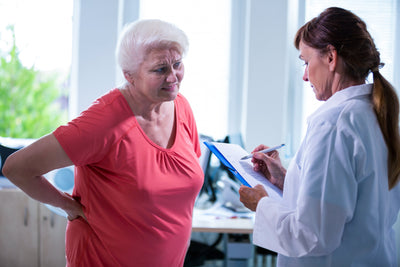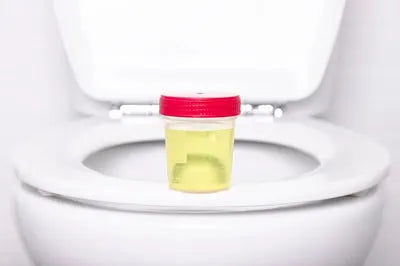Kidneys make urine by filtering your blood. This urine is taken to the bladder by the ureters, two thin pipes. The bladder has the job of holding urine till you are ready to pee. This urine is let out of the body through a pipe called the urethra which opens up after the muscles tighten themselves. The sphincter muscles have to relax to let the urine out. Just making and moving this urine to be let out of the body is a long process and this is not even all of it.
A small malfunction in this entire system can turn your life upside down. Unfortunately, more than 400 million people worldwide suffer from the consequences of a small mishap in this system. They have to constantly live in fear of accidentally wetting their pants in public.
Urinary incontinence is the loss of bladder movements that causes your urine to leak out without you having any control over it or sometimes even without you realizing it. Depending on what causes you to leak urine, you could be suffering from one of the many types of incontinence there are.
In this blog, we are taking a deep dive into the world of urge incontinence (only figuratively) and telling you everything you need to know.
What is Urge Incontinence?
Urge incontinence, meaning an overactive bladder is a urinary condition caused by a malfunctioning bladder. This condition can make you want to rush to the toilet more times than you would honestly care to count.
What are the Symptoms of Urge Incontinence?
Urinary incontinence is not a disease in and of itself. It is a symptom of another issue, usually weak pelvic floor muscles or issues with your urinary tract organs. Some symptoms of urinary incontinence are as follows:
-
Rushing to the bathroom more times than what is considered normal (more than eight times in a day)
-
Waking up several times in the middle of the night to make trips to the bathroom
-
Being unable to hold in urine even for a short amount of time
-
Bedwetting, something that should ring alarm bells in your head
What Causes Urge Incontinence?
Here are a few common causes of urge incontinence:
Overweight – Being overweight puts a lot of pressure on your bladder and the surrounding muscles. This could be a cause for your incontinence issues because the pressure has weakened your bladder and a weak bladder is unable to hold urine.
Constipation – Chronic constipation is also a major cause of urinary incontinence. While passing stools, when your poop is extremely dry, you need to put a lot of pressure. Since the nerves of the urinary tract are quite close to the rectum, this affects them too. The pressure damages the nerves of the bladder and causes urinary urge incontinence over time.
Nerve Damage – Conditions such as diabetes, multiple sclerosis or giving birth can cause nerve damage. The pelvic floor muscles, bladder, and urethra are mainly affected by such conditions.
Surgery – If your pelvic floor muscles are damaged in any way, chances are that your bladder, too, may not work as it should. Surgeries involving the reproductive organs, such as a hysterectomy or removal of the uterus in women, can lead to issues of the bladder.
Medications – Certain medications such as diuretics can cause urge incontinence. The problem usually resolves once you stop taking such medicines.
Caffeine – Consuming too much caffeine can irritate the bladder. It also makes your bladder fill up more quickly. Limiting your intake of beverages with caffeine will be of great help in dealing with incontinence.
Infections – Urinary tract infections (UTIs) can also lead to urge incontinence. This type of incontinence goes away once your infection has been treated.
How to treat Urge Incontinence?
How to cure Urge incontinence? If you’re suffering from incontinence, the first thing that you should do is book an appointment with a doctor. Going to a general physician is a good start. They can guide you to doctors who are experts in this field.
If you are looking for advanced treatment you should see a urologist or a urogynecologist, a doctor who has special training in the female urinary system.
The best treatment for urge incontinence when it is at its nascent stage is to make lifestyle choices along with medical support. You can do the following things which might be of help:
-
Bladder training – Hold off going to the bathroom whenever you feel the urge. This way you can keep increasing the time and train your bladder to hold in pee for longer durations of time.
-
Kegels exercises – Your pelvic floor supports your bladder, urethra, rectum, etc. Performing simple Kegels exercises can help in strengthening your pelvic floor muscles and help you in managing incontinence better.
-
Eat fibrous foods – Eating foods with a lot of fiber content can help with constipation which in turn will help your incontinence. To have more specific food recommendations according to your health condition and needs, consult a doctor.
-
Food – Avoid foods that irritate your bladder. Steer clear of spicy foods, carbonated drinks, caffeine, junk food, etc. You might have reactions to certain other kinds of food too. This is where journaling your dietary habits will come in handy.
-
Journaling – Maintain a diary or a journal. In this journal, put down everything that you’re having for meals and in-between. This way you can keep a track of the foods that have a bad history with your bladder. You can also write down how many times you’re rushing to the bathroom in a day. This will be of help if you are going to seek treatment later.
Urge Incontinence in Males
Enlargement of the prostate gland or benign prostate hyperplasia (BPH) is a major cause of urinary issues in men, especially older men. The prostate, located right above the urethra starts bearing down on it. This creates a lot of pressure and severely affects its function of letting the urine pass through it.
Urge Incontinence in Females
Leading causes of urge urinary incontinence in women are pregnancy, childbirth, and menopause. Incontinence can show up years later or might develop immediately after or during these processes.
-
Pregnancy – Pregnancy puts a lot of pressure on your pelvic floor, bladder, urethra, and the surrounding muscles. The child growing inside the womb pushes on the mother’s bladder. Overtime, this pressure can weaken the muscles and cause you to develop incontinence.
-
Childbirth – The incontinence caused by childbirth usually heals after 6 weeks of pregnancy. Sometimes, it might not. In which case, you need to go to a medical professional who can help you out.
-
Menopause – Low levels of estrogen can weaken your urethra, causing incontinence. As women grow older, their bodies start producing less and less of this reproductive hormone.
Medication for Urge Incontinence
After menopause, vaginal estrogen therapy can help strengthen the muscles and tissues in the urethra and vaginal area in women. Vaginal estrogen comes in the form of cream, suppository, tablet, or ring, and can significantly improve symptoms of overactive bladder.
Some medications that relax the bladder can prove to be effective urge incontinence medication as well. These drugs include:
-
Tolterodine (Detrol)
-
Oxybutynin, which can be taken as a pill (Ditropan XL) or used as a skin patch (Oxytrol) or gel (Gelnique)
-
Trospium
-
Solifenacin (Vesicare)
-
Fesoterodine (Toviaz)
-
Mirabegron (Myrbetriq)
If lifestyle choices and urge incontinence treatment are not working for you, you can discuss these with your doctor:
-
Bladder injections
-
Nerve stimulation
-
Surgery
Managing incontinence on your own is hard. Having some support certainly helps. We at Friends provide you with everything you need to manage incontinence.
-
We have a wide range of incontinence products including tape style diapers, pant style diapers, overnight diapers, adult insert pads, bed bath towels and underpads.
-
All our products are 100% sulphur, chlorine and harmful chemical fragrance-free.
-
Our products are treated with an anti-bacterial layer which keeps rashes, irritation and infections away.
-
We provide our customers with subscription services, so they are ready for crucial events just as much as having fun every day!
With Friends Azadi Mubarak!
















